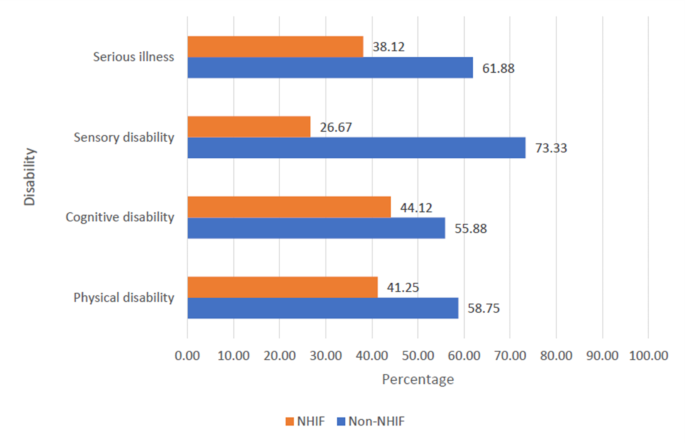UNFORTUATE REFUGEE HEALTH DEFICITS PLAGUE KENYA

Nairobi, Kenya - As more than 200 million people are projected to be forcibly displaced worldwide by 2050, their health needs remain a pressing concern for humanitarian agencies.
Kenya, which hosts the largest number of refugees in Africa, bears the weight of providing essential healthcare services to its refugee population. A new study has shed light on the health insurance subscription behavior of urban refugees in Kenya, revealing alarming levels of underinsurance and highlighting the need for tailored interventions to promote equity among this vulnerable group.
According to the study, published recently in a leading peer-reviewed journal, Kenyan refugees are largely underserved by the country's healthcare system. The research, conducted in the urban slums of Nairobi, found that only about 20% of urban refugee populations had access to health insurance, compared to around 50% of their host communities.
The study attributed this disparity to several factors, including lack of education, marriage status, formal employment, access to media information, and socioeconomic variables. Refugees with disabilities or serious health problems were found to be less likely to subscribe for health insurance, with the risk of catastrophic out-of-pocket expenditure significantly higher for those without coverage.
Researchers argue that current healthcare systems in host countries are ill-equipped to cater to the unique needs of refugees, who often experience traumatic events during their journey and subsequent displacement. This study aims to contribute to the growing body of literature on refugee health insurance by analyzing the effects of disability and serious illness on health insurance subscription among urban refugees in Kenya.
"The health needs of refugees warrant urgent attention," said Dr [Name], lead researcher on the project. "Our findings underscore the critical need for targeted interventions that promote equity in healthcare access and insurance coverage among this vulnerable population."
Humanitarian agencies and governments are being encouraged to adopt a comprehensive approach that prioritizes refugee health, including expanding access to health insurance and providing culturally sensitive healthcare services tailored to their unique needs.
In Kenya, the National Insurance Corporation of Kenya has launched initiatives aimed at increasing health insurance penetration among the general population. This move is expected to benefit urban refugees living in the country's slums.
The research highlights that health security is critical for vulnerable populations like refugees. A robust and equitable healthcare system will help mitigate the adverse effects of displacement, ensuring they can lead healthy lives without exacerbating existing vulnerabilities.
